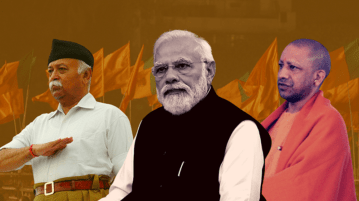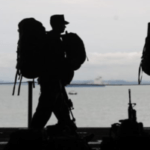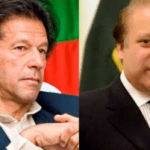With no other mass-appealing option on the horizon, the hate-driven Hindutva ideology is likely to be adopted in some form or another by nearly all political groups.
Radical gangs are in charge as the world’s greatest democracy sinks into an abyss of community bloodshed. This is due to the fact that the ruling BJP has provided them with state support. As India falls deeper into guilt and mourns the death of secularism, it’s a free-for-all competition. The governing party’s constant responses have now become religious rhetoric, bigotry, and prejudice, and a sense of otherness is the norm of the day. The BJP’s allies have been given carte blanche to wreak havoc on minority communities across the country, particularly Muslims.
The current wave of cross-country violence is a vivid reminder of the serious societal division since the country is sharply split along communal and ethnic lines. Clashes are popular from Gujarat to Delhi, and from Karnataka to Assam. The government is only a bystander. The strategy aims to attack minorities in a systematic manner; in addition to Muslims, Christians and Sikhs are also targeted. In India, religion appears to be being exploited as a political weapon, which is terrible in a country with a population of over a billion people. Recently, a major BJP official, Haribhushan Thakur Backhaul, called for Muslims to be burned on fire in the same way an effigy of the mythical demon Ravana is set on fire in Hindu religious rituals. This is mythology resurrected, and it might be fatal for the entire region.
When one considers the timing of recent incidents, the political exploitation of religion becomes even more apparent. Violence erupted across India on the celebration of Ram Navami, the Hindu god Ram’s birthday, in Gujarat, MP, Goa, West Bengal, Jharkhand, and Maharashtra. These riots resulted in several deaths and injuries, as well as damage to a number of homes, religious buildings, automobiles, and other items. This is vandalism, and the cause of it is the leadership’s criminal silence.
Regrettably, the local governments’ approach has been to aggravate the minorities by appeasing the radicals. The Delhi police have been witnessed throwing stones at unarmed minorities. To say the least, the North Delhi Municipal Corporation’s so-called anti-encroachment campaign was merciless and unfair. Even after the Supreme Court issued a stay order, the campaign continues.
Unfortunately, the four pillars of the Indian state have become politicized, and isolation has taken hold. For a diverse society, this is suicidal. State institutions have essentially devolved into shadows of their former selves, with little to no ability to enforce the rule of law. The right-wing Hindu nationalists’ will is being imposed on a country with the world’s second-largest population. With the possibility of Yogi Adityanath being the next Prime Minister, India’s already marginalized minorities face an even bleaker future.
The hate-driven Hindutva ideology mainly relies on the use of religion, and with no other mass-appealing alternative on the horizon, it is likely to be accepted in some form or another by practically all political groupings. The Dalits have already given up their fight. The lack of robust political opposition, the politicization of state institutions, widening socioeconomic inequities, and global powers’ indifference will all contribute to the plight of India’s minorities.
The danger is that it will have a regional impact. India’s borders with Bangladesh, Nepal, and even Myanmar are porous. If the world’s largest human concentration camp, Kashmir, is taken into consideration, Pakistan is not out of the woods. The radicalism that claims to be motivated by faith and a sense of otherness will continue to delve deeper and erupt in a disaster. Only a good political attitude supported by real communal harmony would be able to take India out of its current predicament. It’s time for the wiser elements to speak up.








